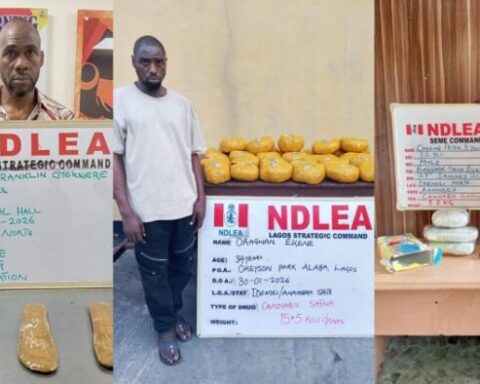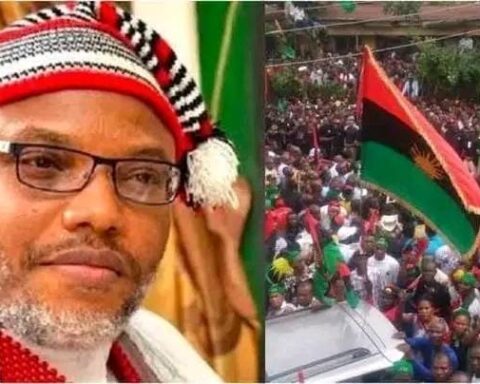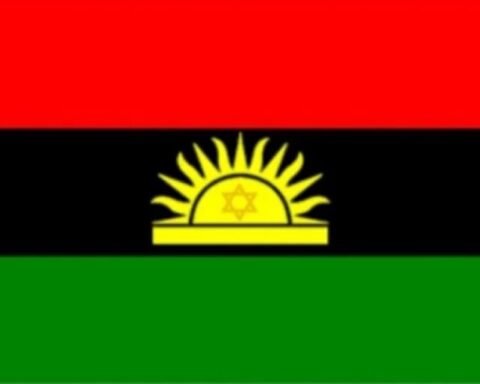By ADEMOLA TIJANI
The candidate of the Labour Party(LP) in the just concluded Edo state governorship election held on Saturday, Olumide Osaigbovo Akpata, has expressed his dissatisfaction with the electoral process, describing it as a transaction rather than a legitimate democratic exercise.
In a press statement released on Monday, Akpata criticized both the All Progressives Congress (APC) and the Peoples’ Democratic Party (PDP), accusing them of engaging in widespread vote-buying instead of participating in a free and fair election that reflected the true will of the Edo people.
Akpata’s statement lamented the flaws in the electoral process that, according to him, were marked by severe voter apathy, vote-buying, and the manipulation of results.
Reflecting on the election, which took place on 21 September 2024, Akpata decried the widespread voter intimidation and the tampering with election results, pointing out that the voter turnout was one of the lowest in recent memory, a concerning sign for the state’s democratic health.
He described this low engagement as a significant factor in what he sees as the disheartening outcome of the election.
“This disengagement ultimately contributed to the worst-case scenario we now face,” he said, characterizing the electoral process as nothing more than a transaction.
Akpata emphasized that both the APC and the PDP had participated in brazen vote-buying tactics, effectively turning the election into a contest not of ideas or policies but of financial might.
Citing the civil society group YIAGA Africa, he further described the election as being reduced to a “commodities market,” where voters were essentially auctioned off to the highest bidder.
Despite his frustration with the outcome, Akpata expressed empathy towards voters who had sold their votes.
He acknowledged that many of those involved in vote-selling were driven by the severe economic hardships they face daily.
“To those who sold their votes, we extend our understanding, not condemnation. We recognize the immense pressures that come with trying to survive under such crushing economic conditions. It is no surprise that in such circumstances, the promise of immediate financial relief through vote-selling can seem like a lifeline,” he said.
However, Akpata warned that this short-term gain comes at a tremendous long-term cost, damaging the integrity of the electoral process and the state’s future.
In stark contrast to the two major parties, Akpata underscored that his campaign had refused to engage in vote-buying, not out of political naivety, but out of a steadfast commitment to democratic principles.
“We did not budget to compete with the APC and PDP, whose Governors likely dipped into their states’ treasuries to fund their campaigns,” Akpata explained.
He made it clear that even if his campaign had possessed the financial resources to compete on the same level, it lacked the inclination to engage in what he termed a “perversion of democracy.”
To illustrate his commitment, Akpata shared a personal example, noting that he lost in his own polling unit—a result that could have been easily manipulated had he chosen to buy votes.
“If I were inclined, I could have mustered enough cash to secure victory in my polling unit, but that is not the path we chose,” he stated, reaffirming his belief in fair and transparent elections, no matter the personal cost.
Akpata’s criticism of the election was not limited to the actions of the APC and PDP during the campaign.
He also accused both parties of contributing to the long-term economic decline of Edo State, claiming that their corrupt practices and focus on wealth accumulation had done lasting damage to the state’s political and economic fabric.
“We reserve our strongest condemnation for those who engaged in vote-buying: the APC and PDP. Their actions have directly contributed to the destruction of our State’s economy over the past 25 years,” Akpata declared, noting that the election underscored a troubling reality—the fact that the political landscape in Edo State and, perhaps, Nigeria more broadly, is increasingly dominated not by the will of the people or competing ideologies, but by those with the deepest pockets and the broadest networks of influence.
Looking forward, Akpata called for urgent electoral reforms aimed at curbing the influence of money in Nigerian politics.
He urged for the use of technology to combat vote-buying and ensure the integrity of future elections.
He also encouraged civil society organizations, the Independent National Electoral Commission (INEC), and other stakeholders to reflect on the irregularities observed in the 2024 Edo election and work collectively towards creating a better electoral process in the future.
“Let this moment not be seen as a defeat, but as a rallying cry for all those who believe in the promise of democracy,” Akpata concluded.
“The power to shape our future does not lie solely in the ballot box but in our daily commitment to upholding the values of integrity, transparency, and public service.”
Through these reforms and a renewed dedication to democratic principles, Akpata expressed hope that a brighter, more just future for Edo State and Nigeria as a whole could still be realized.



























